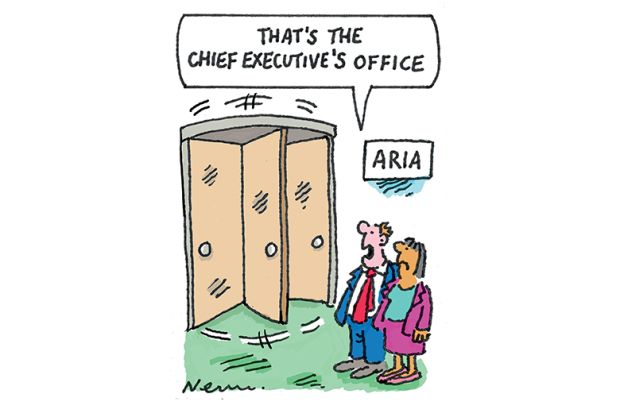
The UK’s answer to the US Defense Advanced Research Projects Agency (Darpa) has faced a bit of a setback after the person picked as its first chief executive decided not to take up the post. Peter Highnam’s recruitment as head of the Advanced Research and Invention Agency (Aria) had been seen as a bit of a coup for the government, given he is deputy director of Darpa. But the British-born computer scientist has now said he will not take up the role, citing “personal reasons”. The government will now have to sift through its previous shortlist of candidates, according to Sky News, which broke the story. Aria is due to open in May and will receive a total of £800 million by 2025-26. The organisation’s first chair is also yet to be named.
A tool used by funders in the UK to track research impact may not appear to be the type of organisation that would provoke a social media storm. But that is what happened to Researchfish, which encountered a severe backlash after threatening to report academics to their funders for being critical of the platform on social media. The row flared up after the company’s official account posted stock replies to critical comments on Twitter saying that “We understand that you’re not keen on reporting on your funding through Researchfish but this seems quite harsh and inappropriate. We have shared our concerns with your funder.” This led to the firm being accused of “bullying” and “threatening” behaviour and funders like UK Research and Innovation saying it would be discussing the Researchfish approach “as a matter of urgency”. Researchfish later apologised, saying it was “actively taking steps to revise procedures and improve communication with those across the research community”.
Teaching brings its own rewards, but after consideration, the University of California, Los Angeles decided that it will also compensate adjunct staff with money. The university abruptly U-turned after advertising for an assistant adjunct professor “on a without salary basis”. Altruistic applicants were expected to have a PhD in chemistry plus “significant experience and [a] strong record in teaching chemistry or biochemistry at the college level”. The posting drew widespread criticism on social and other media. UCLA has since apologised and taken down the posting. In its defence, Bill Kisliuk, director of media relations, said unpaid roles were offered “when an individual can realise other benefits from the appointment that advance their scholarship, such as the ability to apply for or maintain grants, mentor students and participate in research that can benefit society”. Mr Kisliuk said the university “will do better in the future” and would make sure the advert was “correctly written and reposted”, Inside Higher Ed reported.
The societal benefits of an entrepreneurial education are often enthused about, but not in the case of a self-starter at the University of Essex who was caught running the wrong kind of spin-off. Sebastian Stratica was sentenced to 30 months in prison at Ipswich Crown Court for running an expansive drug dealing operation from his private halls, reported Colchester’s Daily Gazette, which said that Stratica had used Snapchat to advertise a “smorgasbord” of cannabis, MDMA, amphetamines, psilocin, ketamine and diazepam. Stratica’s lawyer said the medical sciences graduate had been using drugs to “aid his relaxation and subsequently enhance his ability to study”. Stratica graduated from his bachelor’s shortly after his arrest and the court heard that having weaned himself off drugs he plans to study for a master’s.
With the Westminster government’s bill on free speech and academic freedom appearing to stall as it goes through Parliament, its proponents probably needed a high-profile case to drum up support. It was no surprise, therefore, that Tory MPs on the House of Commons Education Committee were keen to raise the case of Tony Sewell – who chaired a controversial government review on race – after he had his offer of an honorary degree withdrawn by the University of Nottingham because he had become the subject of “political controversy”. Tom Hunt, Conservative MP for Ipswich, said the case raised the question of whether “some of our leading universities truly do respect free speech and different thoughts” and that it made “nonsense of the claim the free speech bill isn’t needed”. Of course, opponents of the bill might say that attacking university autonomy also damages academic freedom, an irony that arguably is a good example itself of why the legislation is mired in difficulty.